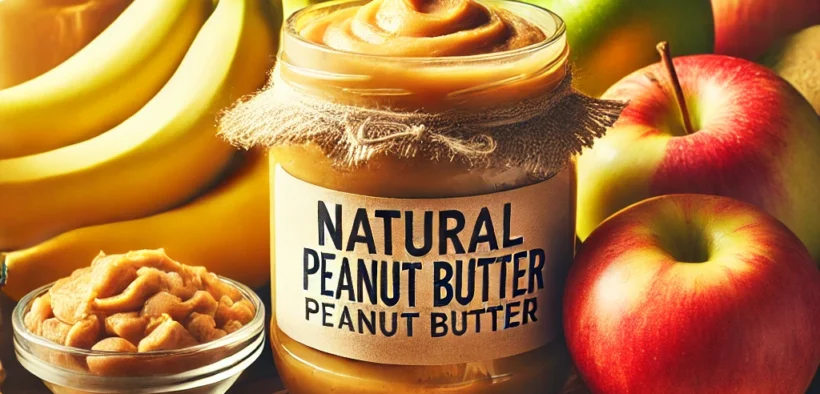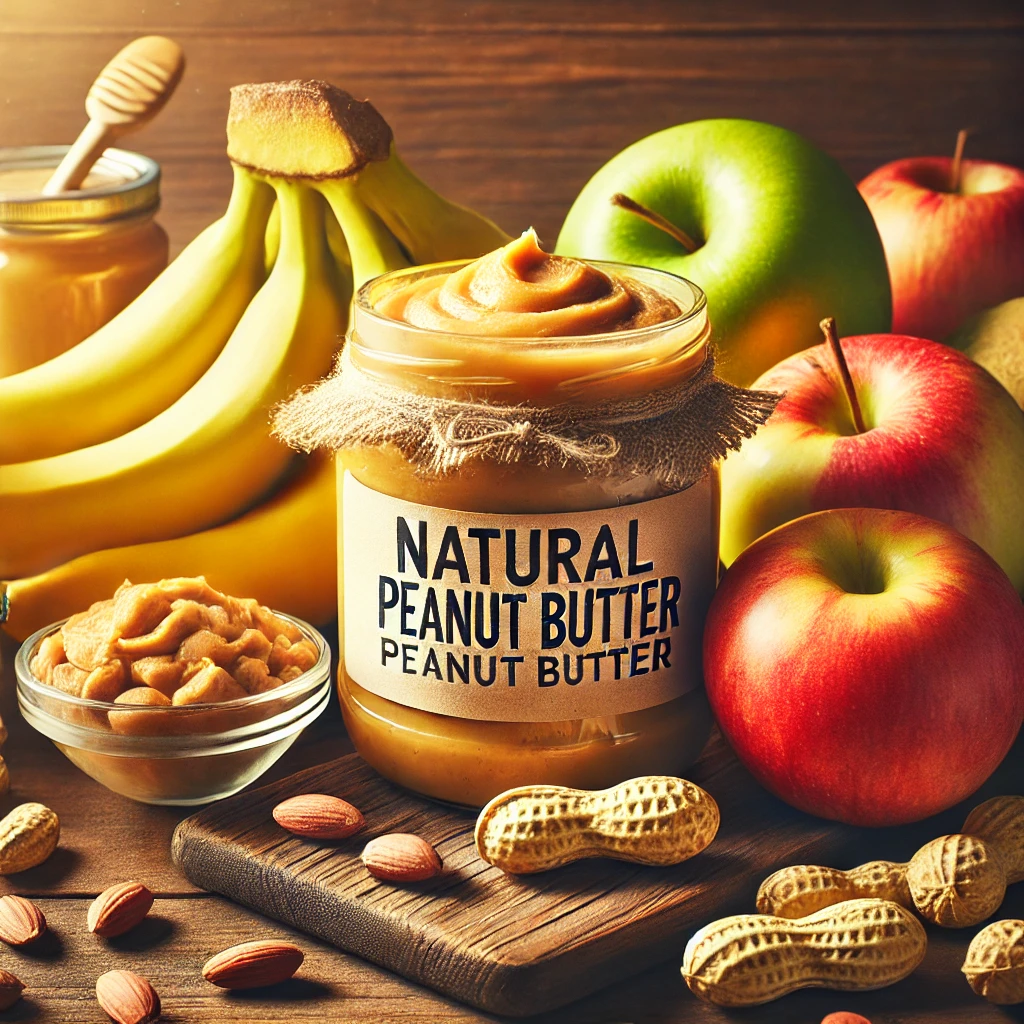The Incredible Health Benefits of Peanut Butter: A Deep Dive
Share

In this article, we’ll explore the benefits of peanut butter and how it can significantly impact your metabolic health, particularly its role in combating insulin resistance. With many people worldwide experiencing elevated blood sugar levels due to insulin resistance, it’s essential to incorporate foods that support metabolic function. Peanut butter stands out as a nutrient-rich option that promotes overall health.
The Benefits of Peanut Butter for Insulin Resistance and Blood Sugar Control
A large portion of the population deals with insulin resistance, which leads to elevated blood sugar levels and fat accumulation, particularly around the abdomen, liver, and stomach. This can trigger a cycle of inflammation and metabolic issues. However, peanut butter, when consumed in its healthiest form, offers a solution.
Peanut butter is packed with vitamins, minerals like magnesium and potassium, and heart-healthy monounsaturated fats. Its low glycemic index (GI) of just 14 means it doesn’t cause a spike in insulin or blood sugar levels like high-GI foods such as bread, cookies, and sodas. The slower absorption of sugars helps to prevent energy crashes, supporting balanced energy throughout the day.

The Power of Fiber in Peanut Butter
One of the significant benefits of peanut butter is its fiber content. Fiber helps regulate blood sugar levels and supports a healthy gut microbiome by acting as a prebiotic. It also alleviates constipation and plays a role in preventing certain types of cancers. By incorporating peanut butter into your diet, you can reduce cravings, manage hunger, and lower your overall food intake, making it a valuable tool for weight management.
How Peanut Butter Affects Insulin and Blood Sugar Levels
Peanut butter helps reduce insulin resistance by stimulating the production of insulin through the hormone GLP-1. This process not only improves blood sugar control but also helps lower A1C levels, making peanut butter an excellent food choice for diabetics and pre-diabetics. Its ability to promote satiety between meals further enhances its benefits for maintaining stable blood sugar levels.
Heart Health and Cholesterol Management
The heart health benefits of peanut butter are just as impressive. Peanut butter helps lower LDL (bad cholesterol) and triglycerides, which are key factors in preventing clogged arteries that can lead to heart attacks or strokes. The magnesium content in peanut butter also supports insulin production, reduces inflammation, and helps prevent metabolic syndrome.
Choosing the Right Peanut Butter
Not all peanut butter is created equal. To fully enjoy the benefits of peanut butter, choose high-quality varieties without added sugars, preservatives, or unhealthy fats. Many store-bought peanut butters contain additives that diminish their nutritional value. Stick to natural peanut butter with minimal ingredients for maximum health benefits.
How to Incorporate Peanut Butter into Your Diet
Peanut butter is not only delicious but also versatile. It can be spread on celery, mixed into smoothies, or paired with fruits like frozen bananas for a nutritious boost. To maintain a healthy balance, aim for about two tablespoons of peanut butter or a handful of peanuts as an ideal portion size.
Final Thoughts
Incorporating peanut butter into your diet can offer numerous health benefits, particularly for those dealing with insulin resistance or pre-diabetes. This nutrient-dense food supports heart health, manages blood sugar, and aids in weight management. Paired with regular exercise, proper sleep, hydration, and stress management, peanut butter can be a powerful addition to your health routine.
By understanding the many benefits of peanut butter, you can make informed choices that promote your overall well-being and help you achieve a healthier lifestyle.
So, share this article with friends and family, and remember: peanut butter is more than just a snack—it’s a health-boosting powerhouse. Make it a great day!
Unlock the Health Benefits of Peanut Butter: Your Top Questions Answered!
| Questions | Answers |
| Can peanut butter help with weight loss? | Yes, peanut butter can aid in weight loss when consumed in moderation. Its high fiber and healthy fat content promote satiety, reducing cravings and preventing overeating. |
| Is peanut butter safe for diabetics? | Absolutely! Peanut butter has a low glycemic index (GI) of 14, meaning it doesn’t cause a rapid spike in blood sugar levels. It can help manage blood glucose, making it a great food option for diabetics or insulin resistance. |
| What type of peanut butter is best for health? | Look for natural peanut butter with no added sugars, unhealthy fats, or preservatives. The ingredients should only list peanuts (and maybe salt). Avoid processed varieties with hydrogenated oils or artificial additives. |
| Can eating peanut butter help lower cholesterol? | Yes, the monounsaturated fats in peanut butter help lower bad cholesterol (LDL) and triglycerides, promoting heart health and reducing the risk of heart attacks or strokes. |
| How much peanut butter should I eat daily? | Moderation is key. A recommended serving size is about two tablespoons of peanut butter, or a handful of peanuts, providing health benefits without excess calorie intake. |
| Does peanut butter cause constipation? | No, peanut butter is actually rich in fiber, which helps prevent constipation by promoting healthy digestion and regular bowel movements. |
| Can peanut butter be part of a healthy snack? | Definitely! Peanut butter can be paired with fruits like apples or bananas, celery, or added to smoothies for a delicious and nutritious snack that keeps you full and satisfied. |
| Can peanut butter be harmful if consumed in excess? | Like any food, consuming too much peanut butter can lead to excessive calorie intake, which may contribute to weight gain. Stick to the recommended serving size to enjoy its benefits without overdoing it. |
- Braised Halibut with Carrots and Coriander: A Weeknight Delight
- Understanding Supraspinatus Tendinopathy with Partial Thickness Tear: Symptoms, Treatment, and Recovery
- Stevia: Why You Should Always Read Labels on Keto-Friendly Products Carefully
- Erythritol: A Comprehensive Guide to the Pros and Cons of This Popular Sweetener
- Tasty- Yummy Tex-Mex Chicken and Rice






